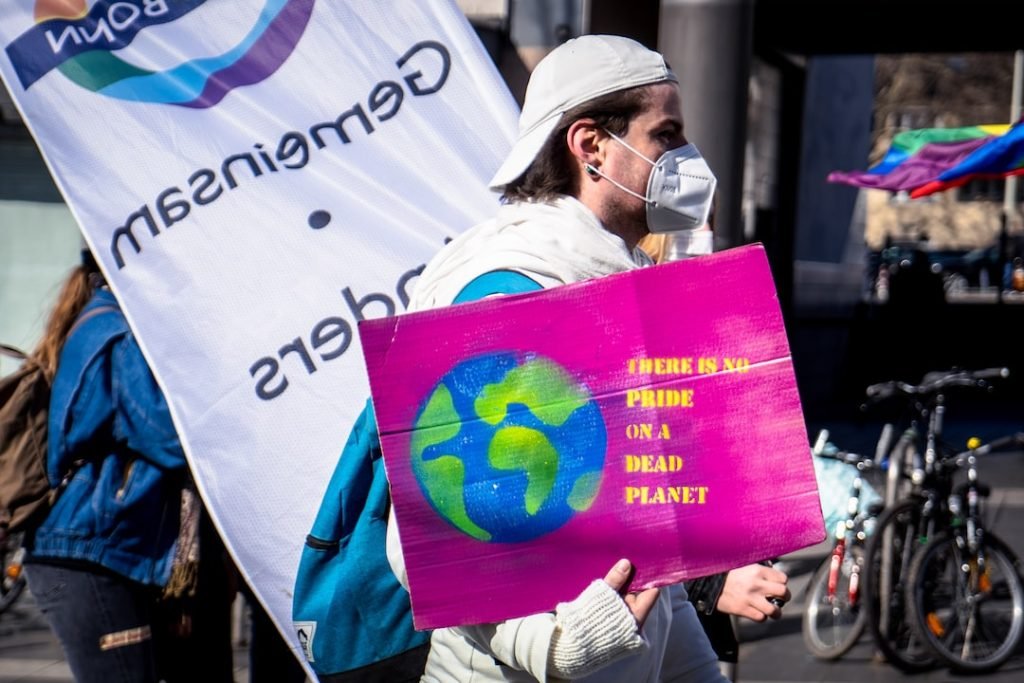

Chinese Vocabulary for Environmental Issues and Awareness
Learning Chinese vocabulary related to environmental issues and awareness is becoming increasingly important in today’s world. As climate change and environmental degradation continue to pose significant challenges, it is crucial for individuals to have a strong understanding of these issues and be able to communicate about them effectively. This blog post aims to provide a comprehensive guide to learning Chinese vocabulary in this field, covering key terms for climate change, pollution, renewable energy, conservation, waste management, environmental education, and more.
Table of Contents
ToggleKey Terms for Climate Change and Global Warming in Chinese
Climate change refers to long-term shifts in temperature and weather patterns that result from human activities, primarily the burning of fossil fuels and deforestation. Global warming is a specific aspect of climate change that refers to the increase in Earth’s average surface temperature due to the greenhouse effect caused by human activities. In Chinese, climate change is translated as “气候变化” (qìhòu biànhuà), while global warming is translated as “全球变暖” (quánqiú biànnuǎn).
To discuss climate change and global warming in Chinese, it is important to be familiar with key terms such as “温室效应” (wēnshì xiàoyìng) which means greenhouse effect, “温室气体” (wēnshì qìtǐ) which means greenhouse gases, and “碳排放” (tàn páifàng) which means carbon emissions. Other useful phrases include “气候变化协议” (qìhòu biànhuà xiéyì) for climate change agreement and “可持续发展” (kěchíxù fāzhǎn) for sustainable development.
Vocabulary for Pollution and Environmental Degradation in Chinese
Pollution and environmental degradation are major concerns worldwide. Pollution refers to the introduction of harmful substances or energy into the environment, while environmental degradation refers to the deterioration of the environment through various factors such as pollution, deforestation, and habitat destruction. In Chinese, pollution is translated as “污染” (wūrǎn), while environmental degradation is translated as “环境退化” (huánjìng tuìhuà).
To discuss pollution and environmental degradation in Chinese, it is important to be familiar with key terms such as “空气污染” (kōngqì wūrǎn) for air pollution, “水污染” (shuǐ wūrǎn) for water pollution, “土壤退化” (tǔrǎng tuìhuà) for soil degradation, and “垃圾问题” (lājī wèntí) for waste problem. Other useful phrases include “环境保护” (huánjìng bǎohù) for environmental protection and “可持续消费” (kěchíxù xiāofèi) for sustainable consumption.
Chinese Words for Renewable Energy and Sustainable Development
Renewable energy refers to energy sources that are naturally replenished, such as solar power, wind power, and hydropower. Sustainable development refers to development that meets the needs of the present without compromising the ability of future generations to meet their own needs. In Chinese, renewable energy is translated as “可再生能源” (kězàishēng néngyuán), while sustainable development is translated as “可持续发展” (kěchíxù fāzhǎn).
To discuss renewable energy and sustainable development in Chinese, it is important to be familiar with key terms such as “太阳能” (tàiyáng néng) for solar energy, “风能” (fēng néng) for wind energy, “水能” (shuǐ néng) for hydropower, and “生态友好” (shēngtài yǒuhǎo) for eco-friendly. Other useful phrases include “可再生能源发电” (kězàishēng néngyuán fādiàn) for renewable energy generation and “可持续城市” (kěchíxù chéngshì) for sustainable cities.
Expressions for Conservation and Biodiversity in Chinese
Conservation refers to the protection and preservation of natural resources and ecosystems, while biodiversity refers to the variety of life on Earth, including plants, animals, and microorganisms. In Chinese, conservation is translated as “保护” (bǎohù), while biodiversity is translated as “生物多样性” (shēngwù duōyàngxìng).
To discuss conservation and biodiversity in Chinese, it is important to be familiar with key terms such as “自然保护区” (zìrán bǎohùqū) for nature reserve, “物种保护” (wùzhǒng bǎohù) for species conservation, and “生态系统” (shēngtài xìtǒng) for ecosystem. Other useful phrases include “可持续农业” (kěchíxù nóngyè) for sustainable agriculture and “生物多样性保护” (shēngwù duōyàngxìng bǎohù) for biodiversity conservation.
Terminologies for Waste Management and Recycling in Chinese

Waste management refers to the collection, transportation, and disposal of waste materials, while recycling refers to the process of converting waste materials into reusable materials. In Chinese, waste management is translated as “废物管理” (fèiwù guǎnlǐ), while recycling is translated as “回收利用” (huíshōu lìyòng).
To discuss waste management and recycling in Chinese, it is important to be familiar with key terms such as “垃圾分类” (lājī fēnlèi) for waste sorting, “可回收物” (kě huíshōu wù) for recyclables, and “废弃物处理” (fèiqì wù chǔlǐ) for waste disposal. Other useful phrases include “可持续消费” (kěchíxù xiāofèi) for sustainable consumption and “资源回收” (zīyuán huíshōu) for resource recycling.
Chinese Vocabulary for Environmental Education and Advocacy
Environmental education refers to the process of teaching individuals about the environment and how to protect it, while environmental advocacy refers to efforts to promote environmental protection and raise awareness about environmental issues. In Chinese, environmental education is translated as “环境教育” (huánjìng jiàoyù), while environmental advocacy is translated as “环境倡导” (huánjìng chàngdǎo).
To discuss environmental education and advocacy in Chinese, it is important to be familiar with key terms such as “环境意识” (huánjìng yìshí) for environmental awareness, “环境保护组织” (huánjìng bǎohù zǔzhī) for environmental organization, and “环境活动” (huánjìng huódòng) for environmental activities. Other useful phrases include “可持续发展教育” (kěchíxù fāzhǎn jiàoyù) for sustainable development education and “环境保护法” (huánjìng bǎohù fǎ) for environmental protection law.
Phrases for Environmental Protection and Preservation in Chinese
Environmental protection refers to the practice of preventing damage to the environment, while environmental preservation refers to the conservation and protection of natural resources and ecosystems. In Chinese, environmental protection is translated as “环境保护” (huánjìng bǎohù), while environmental preservation is translated as “环境保护” (huánjìng bǎohù).
To discuss environmental protection and preservation in Chinese, it is important to be familiar with key phrases such as “保护自然资源” (bǎohù zìrán zīyuán) for protecting natural resources, “减少污染” (jiǎnshǎo wūrǎn) for reducing pollution, and “保护生态系统” (bǎohù shēngtài xìtǒng) for preserving ecosystems. Other useful phrases include “可持续发展目标” (kěchíxù fāzhǎn mùbiāo) for sustainable development goals and “环境友好行为” (huánjìng yǒuhǎo xíngwéi) for environmentally friendly behavior.
Glossary of Chinese Words for Green Living and Eco-Friendly Practices
Green living refers to a lifestyle that is environmentally friendly and sustainable, while eco-friendly practices refer to actions that minimize harm to the environment. In Chinese, green living is translated as “绿色生活” (lǜsè shēnghuó), while eco-friendly practices are translated as “环保实践” (huánbǎo shíjiàn).
To discuss green living and eco-friendly practices in Chinese, it is important to be familiar with key terms such as “节能” (jié néng) for energy conservation, “节水” (jié shuǐ) for water conservation, and “可持续交通” (kěchíxù jiāotōng) for sustainable transportation. Other useful phrases include “环保产品” (huánbǎo chǎnpǐn) for eco-friendly products and “低碳生活” (dī tàn shēnghuó) for low-carbon lifestyle.
Resources for Learning Chinese Vocabulary Related to Environmental Issues and Awareness
There are several resources available for learning Chinese vocabulary related to environmental issues and awareness. Online platforms such as Duolingo, Memrise, and FluentU offer language courses that include environmental topics. Additionally, websites like ChinesePod and HelloChinese provide lessons specifically focused on environmental vocabulary.
To effectively use these resources, it is recommended to set specific goals and allocate dedicated time for learning. Practice regularly by listening to podcasts or watching videos in Chinese that discuss environmental issues. It is also helpful to engage in conversations with native speakers or join online forums where you can discuss environmental topics in Chinese.
Learning Chinese vocabulary related to environmental issues and awareness is essential in today’s world. By understanding and being able to communicate about climate change, pollution, renewable energy, conservation, waste management, environmental education, and more, individuals can actively contribute to the protection and preservation of the environment. With the resources available for learning Chinese vocabulary in this field, it is possible to continue expanding knowledge and practicing these words and phrases. By doing so, we can all play a part in creating a more sustainable future.
If you’re interested in expanding your language skills beyond Chinese, you might want to check out this article on Norwegian vocabulary related to traditions and festivals. It’s a great way to learn more about Norwegian culture and enhance your understanding of the language. Click here to read the article and dive into the rich traditions of Norway.
FAQs
What is the article about?
The article is about Chinese vocabulary related to environmental issues and awareness.
Why is it important to learn Chinese vocabulary related to the environment?
Learning Chinese vocabulary related to the environment can help individuals communicate effectively about environmental issues with Chinese speakers and understand Chinese media related to the environment.
What are some common Chinese words related to environmental issues?
Some common Chinese words related to environmental issues include 环境 (huánjìng) meaning environment, 污染 (wūrǎn) meaning pollution, 可持续发展 (kěchíxù fāzhǎn) meaning sustainable development, and 节能减排 (jié néng jiǎn pái) meaning energy conservation and emission reduction.
What are some Chinese phrases related to environmental awareness?
Some Chinese phrases related to environmental awareness include 保护环境 (bǎohù huánjìng) meaning protect the environment, 绿色生活 (lǜsè shēnghuó) meaning green living, and 低碳生活 (dī tàn shēnghuó) meaning low-carbon living.
How can I practice using Chinese vocabulary related to environmental issues?
You can practice using Chinese vocabulary related to environmental issues by reading Chinese news articles or watching Chinese documentaries about the environment, discussing environmental issues with Chinese speakers, and writing about environmental issues in Chinese.
If you want to learn Norwegian, you can register for classes here. We look forward to hearing from you and helping you become fluent in Norwegian.





